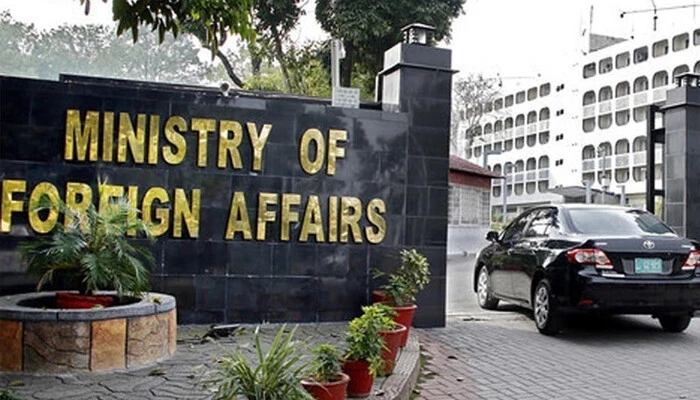
Pakistan’s Foreign Office (FO) has strongly condemned recent remarks by Indian Prime Minister Narendra Modi. The Ministry of Foreign Affairs (MOFA) termed his statements “inflammatory” and a “troubling departure from international norms.” The FO said Modi’s speech reflected historical revisionism, repression of minorities, and aggressive behavior.
Speaking in Gujarat, PM Modi called recent cross-border incidents a “deliberate war strategy.” He warned of strong retaliation from India if provoked. Pakistan found the remarks provocative and irresponsible. The FO noted this was not the first time Modi had used such language during an election campaign.
Water as a Weapon: A Dangerous Path
Modi also suggested that the Indus Waters Treaty had been suspended. He blamed previous Indian governments for neglecting water infrastructure and claimed India would now control the flow of shared water. Pakistan reacted strongly, warning that such statements amounted to “weaponising a treaty-bound resource.”
Read: US-Based Delegation Seeks Meeting with Imran Khan in Adiala Jail
“This is a clear violation of international obligations,” the FO stated. The Indus Waters Treaty, signed in 1960 and brokered by the World Bank, remains a cornerstone of regional water cooperation.
The Foreign Office also raised concerns about India’s involvement in extraterritorial assassinations. It said India had “a track record of subversion abroad,” especially in the context of Indian Illegally Occupied Jammu and Kashmir (IIOJK). The statement highlighted “systematic repression” in the region under Indian control.
Modi’s Hate Speech and Internal Policies
According to MOFA, India continues to promote “mob violence” and “hate campaigns” against minorities. The FO said it was ironic that a country promoting such actions now attempts to play the victim. “Jingoism may earn political points,” the FO said, “but it damages regional peace and stability.”
The FO urged India to show restraint and respect international treaties. It advised Indian leaders to adopt a more mature tone in their public remarks. “Respect for sovereignty, adherence to treaties, and responsible rhetoric are core principles of global order,” the statement read.
Recent Conflict and Ceasefire
Tensions between the two countries escalated earlier in May. India launched missile strikes inside Pakistani territory on May 6 and 7, claiming to target militant camps. The strikes killed several Pakistani civilians, including women and children.
Operation Bunyan-um-Marsoos: Pakistan Responds
Pakistan responded with a large-scale military operation named Bunyan-um-Marsoos. It targeted Indian military installations across multiple regions. The Pakistan Air Force shot down six Indian fighter jets, including three Rafales, and dozens of drones.
The conflict ended on May 10 after 87 hours, following a U.S.-brokered ceasefire.
The Foreign Office concluded by urging Indian youth to reject hate and division. It called on them to support dignity, reason, and regional cooperation instead. “There is more to gain through peace than through provocation,” the statement said.















